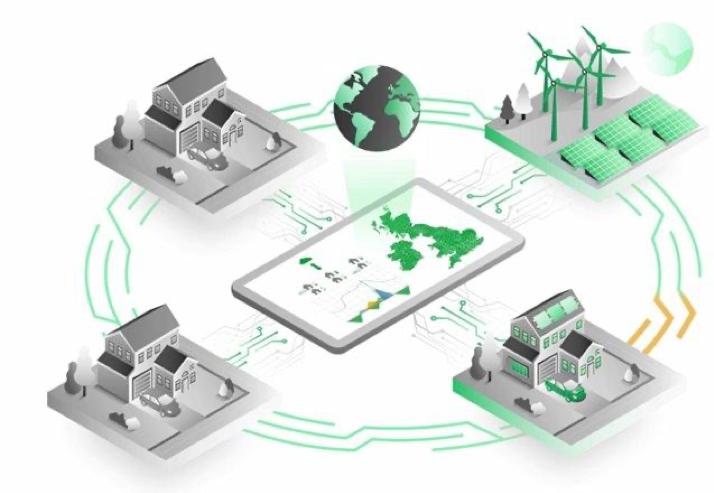Energy communities will play a key role in building the more decentralised, less carbon intensive, and fairer energy systems of the future. Such communities enable local prosumers (consumers with own generation and storage) to generate, store and trade energy with each other — using locally owned assets, such as wind turbines, rooftop solar panels and batteries. In turn, this enables the community to use more locally generated renewable generation, and shifts the market power from large utility companies to individual prosumers.
Energy community projects often involve jointly-owned assets such as community-owned wind turbines or shared battery storage. Yet, this raises the question of how these assets should be controlled – often in real time, and how the energy outputs jointly-owned assets should be shared fairly among community members, given not all members have the same size, energy needs or demand profiles.
It turns out that we can use Artificial Intelligence not only to use more renewable energy and protect the lifetime of expensive assets (such as batteries), but also to devise fairer ways to divide joint gains.
A paper recently published in Applied Energy: doi.org/10.1016/j.apenergy.2021.116575 by researchers from the Smart Systems Group (SSG) at Heriot-Watt University in Edinburgh, Scotland (UK), has shown that tools from distributed AI (specifically multi-agent systems) and cooperative game theory can be efficiently used to answer these questions.
Their work develops new algorithms for smart control of community energy assets (such as local wind turbines and batteries), both to use more locally generated electricity, and to extend the lifetime of energy assets. They compare the case when individual households invest in their own home battery vs. investing in a larger community energy storage unit, and show the benefits of a pooled storage approach. Next, they propose several practically applicable and computationally efficient mechanism to share the outputs of these assets between homes in a fair way. Their works makes use of the key concept of marginal value – borrowed from coalitional game theory and distributed AI, looking at what each member contributes to (and costs) the local community.
The authors were motivated in their work by real case studies from communities in the Responsive Flexibility (ReFLEX) project – the UK’s largest smart energy demonstration project running on Orkney Islands in Scotland. In ongoing work, they also aim to explore the use of their methods for energy communities in India, in the framework of the CEDRI project (Community Energy Demand Reduction in India), a project led by researchers Heriot-Watt University in Scotland and the Indian Institute of Technology (IIT) in New Delhi, India.
Dr. Valentin Robu, Co-Director of the Smart Systems Group added: “This work, led by our PhD student Sonam Norbu, who joined us from Bhutan 3 years ago, demonstrates an excellent mix of top-level scientific impact and practical contribution. The contribution of the Responsive Flexibility project on Orkney Islands, one of the largest smart energy demonstration and “living lab” projects in the UK. I was delighted that Sonam’s work was recently recognised by a nomination for the Young Professional Green Energy Academic Award, awarded yearly by Scottish Renewables, to top industry body for the renewable energy industry in Scotland.”
###
Media Contact
Susan Kerr
[email protected]
Related Journal Article
http://dx.





